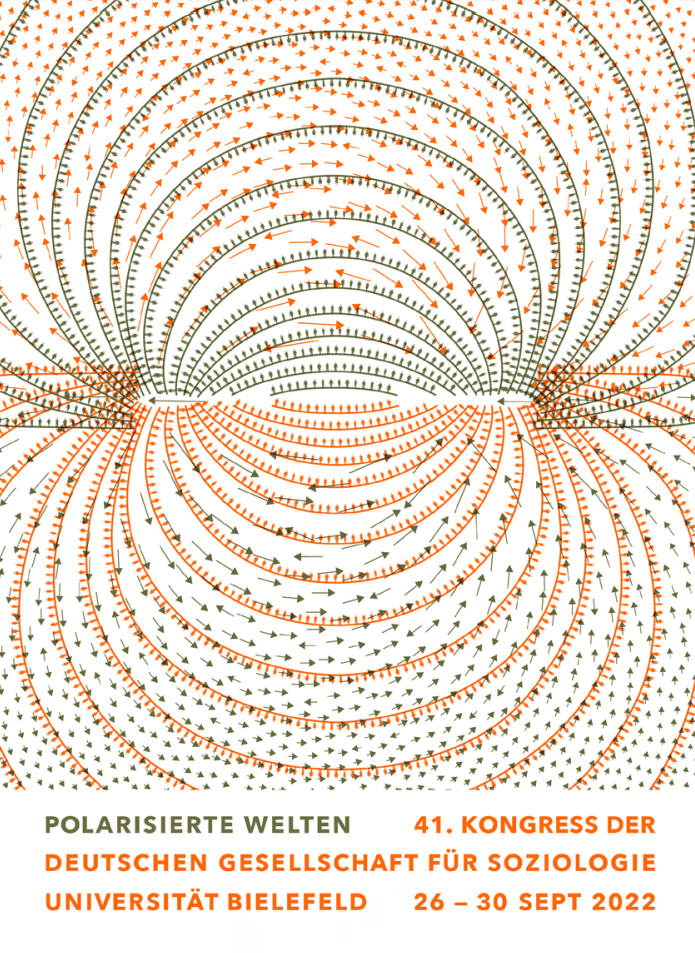Hermeneutics of Critical Cyber Security Studies?
Rethinking contemporary theoretical debates and the case of Serbia
Schlagworte:
Internationale Politik, Südosteuropa, Westbalkan, Serbien, Hermeneutik, Cybersicherheit, DesinformationAbstract
Looking at South-East Europe, and the case of Serbia, offers key insights into reassessing current theoretical debates on cyber (in)security, online disinformation and fake news, and the role of key powers such as China, Russia and the US in this context. Considering the ongoing debate between actor-centered theories of e.g. Balzaq and Cavelty, on the one hand, and political ontology by e.g. Liebetrau and Christensen on the other, the issue of adaptivity of theoretical frameworks in specific cases arises. Hermeneutics represents a possible approach to not only create a synthesis, but also to better understand the relationship between cybersecurity and international relations. In this paper I argue that the specific interrelationship between complexity and interconnectivity of both domestic and foreign factors renders the case of Serbia particularly well suited to investigating our conceptual and empirical understanding of International Relations.
Literaturhinweise
Ayyash, Mark Muhannad. 2019. A Hermeneutics of Violence: A Four-Dimensional Conception. Toronto: Toronto University Press.
Gadamer, Hans-Georg. 1977. Philosophical Hermeneutics. Berkeley: University of California Press.
Gander, Hans-Helmuth. 2005. Hans-Georg Gadamer: In der Spur des Verstehens. In: Philosophen der Gegenwart. Eine Einführung, Hrsg. Jochem Hennigfeld, 31–48. Darmstadt: Wissenschaftliche Buchgesellschaft.
Husserl, E. (F. Kersten, Translator). 1982. Ideas pertaining to a pure phenomenology and to a phenomenological philosophy: First book. Dordrecht: Kluwer.
Juraković, Predrag. 2021. Serbia – China’s Preferred Partner in the Western Balkans. In: China’s Footprint in Strategic Spaces of the European Union, New Challenges fora Multi-dimensional EU-China Strategy. Published by Frank/Vogl (eds.). Schriftenreihe der Landesverteidigungsakademie No. 11/2021.
Kneer, Georg. 2009. Akteur-Netzwerk-Theorie. In: Handbuch Soziologische Theorien, Hrsg. Georg Kneer und Markus Schroer, 19–20. Wiesbaden: Springer VS.
Liebetrau, Tobias and K. Kristoffer Christensen. 2021. The ontological politics of cyber security: Emerging agencies, actors, sites, and spaces. European Journal of International Security 6(1):25–43 .
Milivojević, S. et al. 2020. Acquiring information in the digital sphere in Serbia (original in Serbian: Informisanje u digitalnom okruženju u Srbiji). Belgrade: Centre for Media and Media Research (Centar za medije i medijska istraživanja).
Moebius, Stephan. 2013. Strukturalismus/Poststrukturalismus. In: Handbuch Soziologische Theorien, Hrsg. Georg Kneer und Markus Schroer, 419–445. Wiesbaden: Springer VS.
Pavlović, J. 2019. Digitalization of the public sphere in Serbia: Online executive power pressure on the ombudsman and the reaction of the oppositional Twitter community (original in Serbian: Digitalizacija javne sfere u Srbiji: Online pritisci izvršne vlasti na Ombudsmana i reakcije opioziciono opredeljene Tviter zajednice.). Političke Perspektive 77(3):52–75.
Petrović, D. 2018. Digital Platforms as Means of Political Propaganda: The Case of the Protest Against Dictatorship Fake Facebook Page (original in Serbian: Upotreba digitalnih platformi za potrebe političke propagande: slučaj lažne Fejsbuk stranice protesta Protiv diktature. CM Komunikacija i mediji 13(44):5–34. Central and Eastern European Online Library.
Pinch, Trevor J., and Wiebe E. Bijker. 1984. The Social Construction of Facts and Artefacts: Or How the Sociology of Science and the Sociology of Technology Might Benefit Each Other. Social Studies of Science 14:399-441.
Shaojun, Li. 2006. International Relations Research and Hermeneutic Methods. World Economics and Politics, Volume 10. Beijing: China Academic Journal Electronic Publishing House.
Yanow, Dvora. 2009. What’s Political About Political Ethnography? Abducting Our Way Toward Reason and Meaning. Qualitative & Multi-Method Research 7(2):33–37.
Online Sources, Media Sources:
Beta/Fonet. 10-14-2019. Meeting of officials of the SNS and the Chinese Communist Party (original in Serbian: Sastanak zvaničnika SNS i Komunističke partije Kine) via N1. Accessed: https://rs.n1info.com/vesti/a534467-sastanak-zvanicnika-sns-i-komunisticke-partije-kine/ as seen 07-02-2022.
Čovs, Lazar. 03-06-2022. #CASTLELEAKS: New data from the SNS fortress (original in Serbian: #CASTLELEAKS: Novi podaci iz SNS tvrđave). Cenzolovka. Accessed: https://www.cenzolovka.rs/pritisci-i-napadi/castleleaks-novi-podaci-iz-sns-tvrdjave/ as seen 07-02-2022
Civil Institute for Democracy and Security PARALAKS. 2008. Public or Private Politics in Serbia? (original in Serbian Јавна или приватна политика у Србији?). Accessed: https://vdocuments.mx/prilozi-o-uzurpaciji-drzave-kao-bezbednosnom-riziku.html?page=1 as seen 06-26-2022.
Danas. 07-23-2019. Šešelj‘s relations with the Zemun Clan insufficient for an indictment (original in Serbian: Šešeljeve veze sa Zemunskom klanom nedovoljne za optužnicu). Accessed: https://www.danas.rs/vesti/drustvo/seseljeve-veze-za-zemunskim-klanom-nedovoljne-za-optuznicu/ as seen 06-25-2022.
Encyclopedia Britannica. International relations. Accessed: https://www.britannica.com/topic/international-relations as seen 07-02-2022
Freedom House. 2022. Serbia Country Report, accessed: https://freedomhouse.org/country/serbia , as seen 06-25-2022.
Kurir. 08-07-2021. 5th of October was great treason! (original in Serbian: 5.Oktobar je bila velika izdaja!). Accessed: https://www.kurir.rs/vesti/politika/3744131/5-oktobra-je-bila-velika-izdaja-od-slobe-poceli-da-se-sklanjaju-svi-od-vrha-policije-do-db-zemunci-se-tada-osetili-mnogo-vazni as seen 06-26-2022.
Mondo. 21-10-2022. Li to the Progressives: Your party has made a miracle (Serbian, in English: Li naprednjacima: Vaša stranka napravila je čudo miracle). Accessed: https://mondo.rs/Info/Srbija/a1140133/Kineski-ambasador-na-proslavi-SNS-a.html as seen 07-02-2022.
Nova Srpska Politička Misao. 04-18-2015. The uncovered secret “Fortress“ of the SNS bots – newest program used by SNS activists for commenting in the internet transpired (original in Serbian: Откривена тајна „тврђава“ СНС ботова - процурео најновији програм који активисти СНС користе за коментарисање на Интернету). Accessed: http://www.nspm.rs/politicki-zivot/teleprompter-otkrivena-tajna-tvrdjava-sns-botova-procureo-najnoviji-program-koji-aktivisti-sns-koriste-za-komentarisanje-na-internetu.html?alphabet=l as seen 01-07-2022.
Nova Ekonomija. 10-08-2019. A former bot describes how the SNS internet team looks like (original in Serbian: Bivši bot opisuje kako izgleda sns internet tim). Accessed: https://novaekonomija.rs/vesti-iz-zemlje/biv%C5%A1i-bot-opisuje-kako-izgleda-sns-internet-tim-video as seen 06-30-2022.
Skrozza, Tamara. 2005. Two war comrades, Šešelj and Milošević – the last line of defense (original in Serbian: Dva ratna druga, Šešelj i Milošević – poslednja linija odbrane). Vreme. Issue Nr. 764, accessed: https://www.vreme.com/vreme/dva-ratna-druga/ as seen 06-26-2022.
Downloads
Veröffentlicht
Ausgabe
Rubrik
Lizenz
Copyright (c) 2023 Polarisierte Welten. Verhandlungen des 41. Kongresses der Deutschen Gesellschaft für Soziologie 2022

Dieses Werk steht unter der Lizenz Creative Commons Namensnennung - Nicht-kommerziell 4.0 International.
Beiträge im Verhandlungsband des 41. Kongresses der Deutschen Gesellschaft für Soziologie in Bielefeld werden unter der Creative Commons Lizenz "Namensnennung-Nicht kommerziell 4.0 International (CC BY-NC 4.0)" veröffentlicht.
Dritte dürfen die Beiträge:
-
Teilen: in jedwedem Format oder Medium vervielfältigen und weiterverbreiten
-
Bearbeiten: remixen, verändern und darauf aufbauen
unter folgenden Bedingungen:
-
Namensnennung: Dritte müssen angemessene Urheber- und Rechteangaben machen, einen Link zur Lizenz beifügen und angeben, ob Änderungen vorgenommen wurden
-
Nicht kommerziell: Dritte dürfen das Material nicht für kommerzielle Zwecke nutzen





